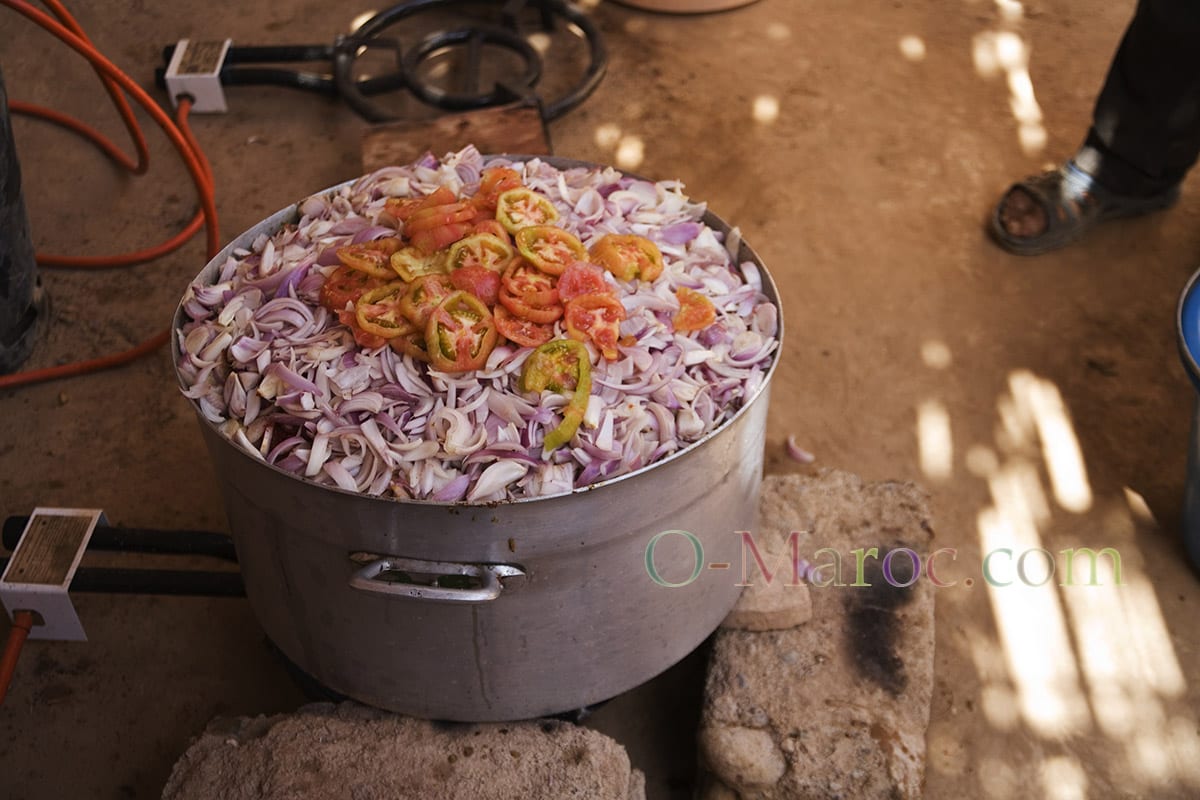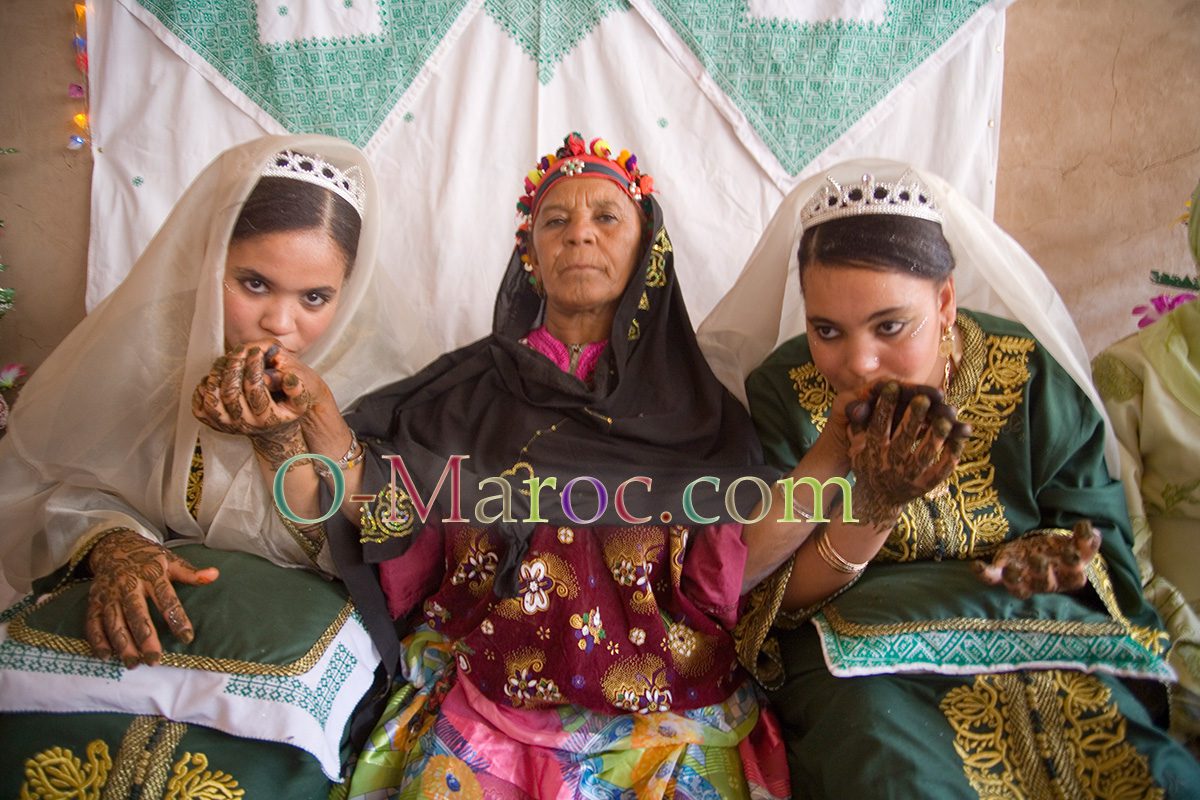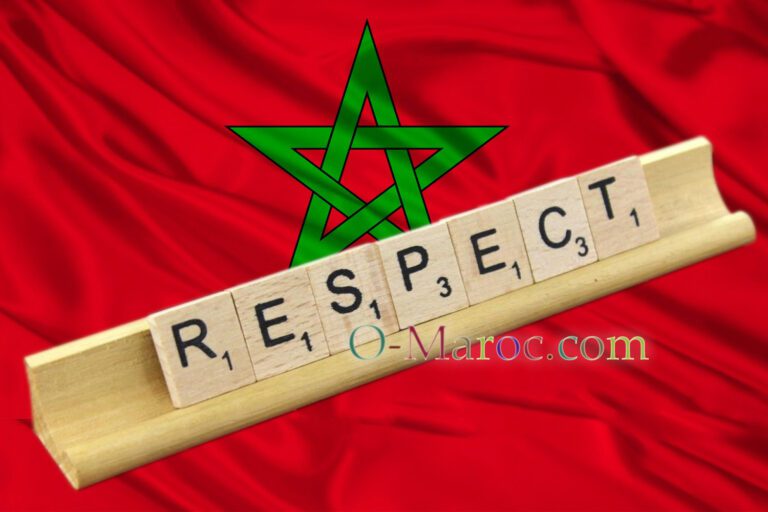Respect ( احترام in Arabic) is arguably the most important element in human relations in Morocco. It goes much further than avoiding losing face. Respect for parents, family, community, respect for one’s colleagues, boss, elders… and respect for oneself.
If there are worrying signs in the relationship between a Moroccan and a foreigner, between a Moroccan woman and a foreigner, the most serious point (or conversely the one that can really reassure) is the lack of respect.
But here’s the thing… this lack of respect doesn’t always manifest itself in a way that we can easily detect. Our Western culture can prevent us from noticing signals and disrespect that a Moroccan would immediately note.
Respect “by proximity”
In a country where community and family are so important, an attack on one person’s honour reflects on the whole family.
What your partner can perfectly well understand and accept in your behaviour is one thing. But when it’s public, the community and the family have to accept it.
We come back to this notion of private and public that is so essential and that some people confuse with hypocrisy.
And it plays out differently when the foreigner is a foreign woman. Because in Morocco, the woman is integrated into the husband’s family, she ‘abandons’ her family in a way. Not emotionally, but responsibility in the broadest sense is transferred to the husband, who has become her mahram. Men will have much more freedom and benefit from much more indulgence in this very macho world – dare we say it!
Here is a list of behaviours to avoid if you want to respect the codes of Moroccan society.
Not being discreet on social networks
Look at the accounts of Moroccan women: very rarely do you find ‘couple’ photos where a man and a woman are holding each other, taking a selfie while kissing, etc. Or else they are reserved for a private profile ‘for girlfriends’. Or they are reserved for a private profile “for girlfriends”.
In Morocco, you don’t hug in the street, you don’t kiss in public. The same goes for the internet. If these photos are public, they can always be hijacked, and fall under the eye of an aunt or grandmother who’s a bit of a prude, or a bad-mouthed neighbour.
So don’t be offended if he asks you not to share these photos. He’s not jealous or backward. He just knows the harm it can do and what some people will think of you. And no, in this family-friendly country, other people’s opinions are not irrelevant.
Keep chatting with single men
You had a life before you met him, he knows that, it’s not a problem. Nobody wants to know what happened before. You arrive at the wedding a virgin and everyone pretends to believe it. (Public, private, whatever).
But friendship between a man and a woman does not exist in Morocco. Comradeship, perhaps.
A hadith states
A man doesn’t go one-on-one with a woman without Satan being the third party.
A married woman will therefore stop having online relationships with men who are not members of her family.
Even in ‘real’ life, it’s rare to go out with anyone other than two couples or a group of friends. Or they go their separate ways, men with men, women with women. And in the workplace, we operate in the same way as American companies, which seek to avoid accusations of harassment: no one-on-one meetings, or behind glass partitions, for example.
When I worked from home in Ouarzazate, my clients would only come into the office if my husband was there or my assistant, and they would see me in open spaces.
It wasn’t a question of jealousy, but of respect for me and my husband.
Being hit on by another man when you’re in an official relationship
Any ‘one-to-one’ relationship can be interpreted as an invitation.
And it will always be seen as the woman’s fault for failing to protect herself.
Yes, I know. But you married a Moroccan. You’re not there to change the mentality of an entire country.
If this situation arises, your husband MUST react. If he doesn’t, it’s not because he trusts you. It’s because he doesn’t think you’ve been disrespected, or that he’s been disrespected.
And this should be a deep red flag.
Offering your man money, asking your wife for money
A self-respecting Moroccan man provides for his household.
Yes, there is often a big difference in income. But it’s not up to the woman to take care of the man. Especially at the beginning of the relationship. If you come on holiday to Morocco, pay for your expenses, but not for everything. If he tells you about problems, don’t offer him money. If he asks you for money, it should be exceptional and in the form of a loan. This is the best way to avoid turning love into a relationship of dependence or, worse still, one in which he feels bought.
And while this recommendation will of course evolve over the course of the marriage, never forget that assets are separate and that “joint funds” are not the norm in Morocco.
The presentation to parents
Out of respect, this time for his parents, a Moroccan will not introduce you to them unless his intentions are serious.
You may be invited before the wedding, but you will not normally sleep together. If you are allowed to live at your parents’ home before the wedding… another extremely red flag.
And the presentation to the family at the wedding
Moroccan weddings are renowned for their length and number of guests.
It’s a highly codified and relatively expensive ceremony. And it’s a far cry from “European in Morocco” ceremonies, which are simply receptions after the civil wedding, often mixing Moroccan and foreign rituals…
In the past, and still today in the ‘bled’, traditional weddings allowed the whole village, the family, the tribe, to know that this man and this woman were married. No banns were published, or even civil status. Just a marriage, in the eyes of everyone, really everyone.

It was also undoubtedly the most beautiful day in a woman’s life, the only day when she could legitimately show herself off in beautiful clothes and be admired by everyone. After this wedding, she would enter a life of discretion, where only her husband and other women would see her beauty.
I know hundreds of strangers, starting with myself, who wanted a small, intimate ceremony. And hundreds of in-laws who didn’t get their wish.
For the record, when my future brother-in-law started drawing up the guest list for our intimate ceremony, he counted in ‘families’, dozens of chickens, etc. And it was a very small party indeed, compared to the one that took place later, in May, at Tazzarine, where around 700 people were invited!
Of course, the ceremony has to be adapted to the financial means of the bride and groom. But ‘too intimate’ isn’t really normal. In fact, this is one of the criteria taken into account when registering the marriage at the French registry office or for immigration: were the bride and groom’s families present?
So if your in-laws give in a little too easily to your wish for an intimate ceremony, perhaps they’re not so proud of the wedding.
The words and gestures of respect
In the family circle and among friends, respect is sometimes shown in disconcerting ways.
For example, when someone you respect makes a remark to you, it’s out of the question to look them in the face; you have to lower your eyes. When someone doesn’t look you in the face when you’re talking to them, you get the impression that they’re running away from you, waiting for things to happen. On the contrary, in this particular case, looking them in the face would be seen as a provocation.
An older person is called a “Hajj” or “Hajja” (the name given to people who have made the pilgrimage to Mecca) or “Ami” (my uncle) or “Lalla Ami” (my aunt), or “Sidi” (“lord”), “Lalla” (“princess”).
Showing someone respect also means taking the time to talk to them, to enquire not only about their health, but also that of their whole family, their children and their work. It means taking the time to negotiate with a merchant, even if you both know perfectly well what price you’re going to end up with.
In a professional context, you need to be careful about making any comments face to face. In a clear but very respectful way, recognising the positive points.
Hand kiss or handshake?
It struck me as I was looking for a (royalty-free) image to illustrate this post. “The” photo that symbolises respect is the (manly) handshake.

Whereas for me, obviously Moroccanised, it’s the hand kiss, the one that children give to their parents, officials to the King in the allegiance ceremony or any person to another, to mark this respect.
This gesture is also found in the ‘Mano’ in the Philippines.

The difference between looking someone in the eye and looking them down is even more pronounced…
The ultimate disrespect? Humour and irony
While some say that humour is when you laugh at yourself and irony is when you laugh at others, in both cases it has to be said that Moroccans have no sense of humour or second degree, and don’t laugh at themselves or at others. And they almost always take it as an insult.
What’s more, let’s be honest, this humour is often not ‘good-natured’, but more or less conceals real aggression.
Moroccans know how to make jokes about themselves. They immediately take on another dimension when they are told by a foreigner, and even more so by a Frenchman, who is suspected a priori of neo-colonialism and racism.
If we add to that the fact that humour is probably the most difficult thing to convey in a foreign language, and that the cultural references are not the same, we can only recommend that you refrain from using it, or if you do use it at your own risk, that you make it very clear.
How many times have I had to deal with nasty or insulting comments on this blog? People who systematically misinterpreted even a joke told by my Moroccan husband that I was simply reporting?
You should also avoid making fun of yourself, as they might take it at face value.
There are some subjects on which you can’t joke with Moroccans: religion, the King, the Sahara; as for the rest, if you want to laugh with them at their faults, share the numerous pieces of content made by Moroccan comedians (at the moment The Tberguig is back).
 A typo or syntax error? You can select the text and hit Ctrl+Enter to send us a message. Thank you! If this post interested you, maybe you can also leave a comment. We'd love to exchange with you !
A typo or syntax error? You can select the text and hit Ctrl+Enter to send us a message. Thank you! If this post interested you, maybe you can also leave a comment. We'd love to exchange with you !




